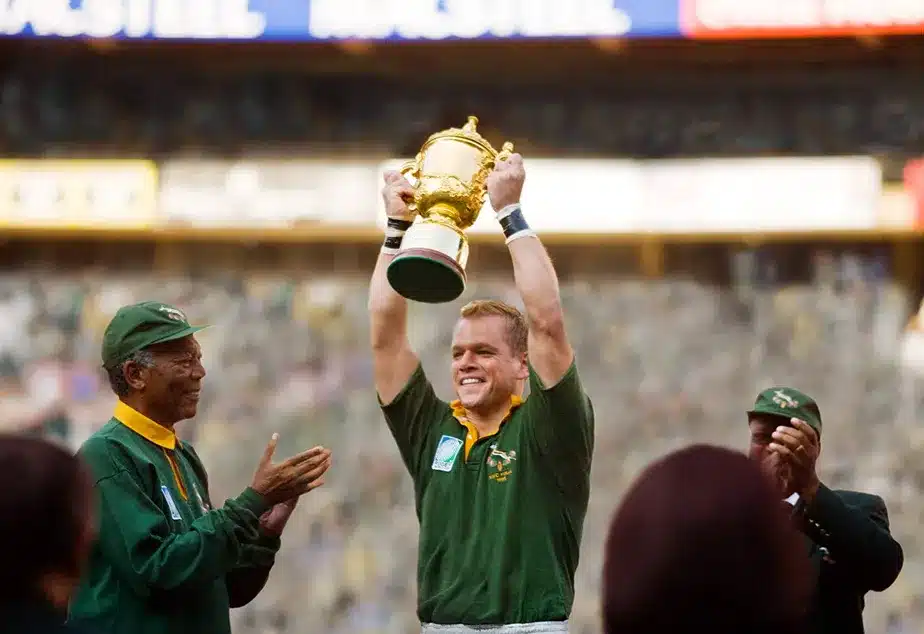Adverts
The Rugby World Cup stands out as the sport's main international tournament, taking place every four years and bringing together the most prominent rugby teams around the globe. This unique sporting event represents an ode to the passion, strength and skill of the players, who unfold in a sport that requires not only fearlessness, but also a sharp strategy.
The experience of watching the Rugby World Cup online has a number of significant advantages. Firstly, it enables fans to access live streams and comprehensive coverage regardless of their geographic location. Additionally, streaming platforms offer expert analysis, real-time statistics and replays, providing a deeper immersion into the viewer experience. This proves particularly beneficial when following matches played in different time zones.
To find out how to enjoy the Rugby World Cup for free and online, as well as getting detailed insights into the sport and the event in question, we invite you to continue reading our article!
The history of rugby
Rugby has its roots in the 19th century, originating from games popular in British schools. Legend attributes the creation of the sport to William Webb Ellis, who, in 1823, caught the ball with his hands during a football match, giving rise to what would later be called “rugby football”. The sport gained popularity among educational institutions, adopting formal rules that differentiated rugby from football.

The expansion of rugby beyond British borders occurred mainly through contact with British alumni in different parts of the world. The sport began to organize itself internationally, with the formation of the Rugby Football Union in 1871 in England, a fundamental milestone in the standardization of rules.
Rugby's inclusion in the 1900 and 1908 Olympic Games highlighted its growing global popularity. The sport continued to develop, culminating in the first Rugby World Cup in 1987, a competition that transformed the sport's international landscape. Since then, the Rugby World Cup has become one of the most watched and exciting sporting events in the world, distinguished by its physical intensity, tactical strategy and spirit of camaraderie. Over the years, rugby has evolved to include different variants such as rugby sevens, further broadening its global appeal and securing an enduring place in the rich tapestry of the world sporting stage.
Stars of the sport
Rugby has played host to some of the game's greatest stars, players whose exceptional skills, inspiring leadership and remarkable contributions have left an indelible mark on the international stage. Some of these notable stars include:
- Jonny Wilkinson (England): Renowned for the accuracy of his kicks, Wilkinson is a rugby legend and was immortalized when he scored the decisive drop goal in the 2003 Rugby World Cup final, leading England to the title.
- Richie McCaw (New Zealand): Iconic captain of the All Blacks, McCaw is widely considered one of the best rugby players of all time. His exceptional leadership and skills as a flanker have been instrumental in New Zealand's successes, including World Cup victories in 2011 and 2015.
- Dan Carter (New Zealand): Recognized as one of the best openers in history, Carter dazzled the rugby world with his dexterity in controlling the game, shooting accuracy and tactical skills. He is one of the greatest scorers in the history of the sport.
- Brian O'Driscoll (Ireland): An Irish legend, O'Driscoll is one of the greatest centers in rugby history. His ability to read the game, agility and ability to break down defenses set him apart as an influential figure in international rugby.
- Sébastien Chabal (France): Known as “The Caveman”, Chabal was an imposing and charismatic player. His physical presence and intensity made him a towering figure in French and international rugby.
- Jonah Lomu (New Zealand): One of the greatest wingers of all time, Lomu was a force of nature. His speed and physical strength were impressive, and he especially stood out at the 1995 World Cup.
- George Gregan (Australia): Gregan is one of the most respected scrum-halves in rugby history. He was instrumental in Australia's achievements, including victory in the 1999 Rugby World Cup.
- Thierry Dusautoir (France): France's notable captain, Dusautoir led his team to the 2011 Rugby World Cup Final, displaying incredible tenacity and being recognized as Player of the Tournament.
These rugby stars have transcended borders and become icons of the sport, inspiring fans and aspiring players around the world. His notable contributions have added to the rich tapestry of international rugby.
Origin and foundations of the Rugby World Cup
The origins of the Rugby World Cup date back to the end of the 19th century, when rugby, derived from popular games played in British schools, began to gain prominence as a distinctive sport. The most widespread legend attributes the creation of rugby to William Webb Ellis, who, in 1823, innovatively caught the ball with his hands during a football match at Rugby School, thus originating the term “rugby football”.
The formalization of rugby rules was crucial to its development. In 1871, the Rugby Football Union was founded in England, laying the foundations for the modern sport and facilitating its international spread. Schools and clubs began adopting rugby in various parts of the world, boosting its global status.

The idea of an international rugby competition began to gain momentum throughout the 20th century. However, the first Rugby World Cup was only held in 1987, jointly organized by Australia and New Zealand. This inaugural competition marked a significant milestone, cementing rugby as a global sport and providing players with the opportunity to represent their nations on an international stage.
Since then, the Rugby World Cup has become a quadrennial event eagerly awaited by fans around the world, celebrating not only sporting excellence but also promoting camaraderie and passion for rugby in its purest form. The competition continued to evolve, incorporating teams from different continents and establishing itself as one of the most prestigious sporting events on the planet.
Great moments and memories from the competition
The Rugby World Cup is full of memorable moments that have gone down in the history of the sport. Among these notable achievements, some stand out as icons of passion, skill and overcoming:
The 1987 inaugural: The first edition of the Rugby World Cup, held jointly by Australia and New Zealand, saw New Zealand become the champion team. The spectacular Maori haka performed by the All Blacks became a moving tradition that continues to this day.
South Africa's Epic Victory in 1995: The South African team, led by Nelson Mandela, won the World Cup at home, providing a historic and symbolic moment for the post-apartheid nation. The image of Mandela handing the trophy to captain François Pienaar has become iconic.

Jonny Wilkinson e o Drop Goal em 2003: In the 2003 final between England and Australia, Jonny Wilkinson sealed victory for the English with a drop goal in the final minutes of extra time. This singular play is often remembered as one of the most dramatic moments in Rugby World Cup history.
Japan's Surprising Victory in 2015: Japan shocked the world by defeating South Africa in the 2015 group stage. The match, marked by an incredible performance and a spectacular last-minute try, highlighted the unpredictability and emotion of rugby.
New Zealand's return in 2011: After a 24-year title drought, New Zealand emerged as champions in 2011, beating France in the final. The emotion of the New Zealand nation was palpable, consolidating the team as a powerhouse in world rugby.
The tournament's legacy
The Rugby World Cup has left a lasting and impactful legacy in the world of sport, contributing significantly to the development and global recognition of rugby. Some of the key elements of the legacy include:
- Global Rugby Growth: The competition served as a catalyst for the expansion of rugby in different parts of the world. Nations that have not traditionally been at the center of the rugby scene have seen an increase in interest and participation in the sport, driving its global growth.
- Development of sports infrastructure: Host and participating countries have invested in high-quality sports infrastructure to host the tournament. These facilities continue to be used for rugby events and other sporting competitions, leaving a tangible legacy for local communities.
- Influence on future generations: The Rugby World Cup has inspired generations of young players and fans. The visibility and excitement of the tournament served as a source of inspiration for new talents and contributed to the increase in the number of rugby players around the world.
- Value promotion: Rugby is known for its core values such as respect, integrity, passion, solidarity and discipline. The Rugby World Cup amplified these values, highlighting the importance of fair play, camaraderie and sportsmanship.
- Economic and tourist impact: The tournament had a significant impact on the host countries' economies, generating revenue through tourism, sponsorships and trade. The Rugby World Cup attracted visitors from around the world, providing a positive economic injection.
- Diversity and inclusion: The competition has helped to promote diversity and inclusion in rugby. The presence of teams from different continents and cultures highlights the global nature of the sport, celebrating diversity on the international stage.
- Social legacy: In addition to its sporting impact, the Rugby World Cup often leaves a social legacy, involving community programs, education projects and local development initiatives. These actions seek to use rugby as a tool to promote positive social changes.
How to watch the Rugby World Cup for free
Watching the Rugby World Cup for free may depend on options available in your country and broadcast partnerships. Here are some general strategies you can consider:
- Public broadcast channels:
- Check whether free-to-air or public television channels in your country have the rights to broadcast the Rugby World Cup. Many countries make important games available on free-to-air channels.
- Official websites and apps:
- Check if the tournament organizer or partner broadcasters offer free broadcasts through their official websites or apps. Some competitions offer games for free online.
- Social media:
- Partnerships with sponsors:
- Tournament sponsor companies may offer free broadcasts as part of their promotions. Keep an eye out for promotional offers or partnerships that allow free access to games.
- Free Streaming Services:
- Some streaming services may acquire broadcast rights and offer free viewing of major sporting events. Check for legal platforms that will stream the games for free in your country.
- Digital libraries:
- Some digital libraries may acquire broadcasting rights for sporting events. Check whether there are partnerships between digital libraries and the organization organizing the Rugby World Cup.
- Public events:
- In some places, public events are organized to watch the games on big screens. These events are usually free and provide a community experience.
Did you like this content?
Keep in mind that options for watching the Rugby World Cup for free may vary depending on the region you are in and also depend on broadcast partnerships. Make sure you are aware of streaming laws and only use legal sources to avoid copyright issues, okay? To do this, just follow the tips we brought you in this article and enjoy your favorite team's matches!




